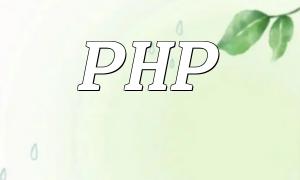How PHP Coding Standards Adapt to Team Size
As a team grows, the complexity of collaboration in software development increases. PHP coding standards play a crucial role in maintaining code quality and facilitating team coordination. This article outlines the best practices for both small and large teams, along with real-world code examples.
PHP Coding Guidelines for Small Teams
Smaller teams typically move quickly and communicate frequently. Therefore, their coding standards should focus on clarity and maintainability.
Clear File and Directory Structure
- Use meaningful names for files and directories for easy navigation
- Organize related files into logical folders to improve readability
/src
├── Controller
│ ├── UserController.php
│ ├── HomeController.php
│ └── ...
├── Model
│ ├── User.php
│ ├── Product.php
│ └── ...
└── ...
Consistent Indentation and Spacing
- Use consistent indentation, either spaces or tabs
- Use blank lines to separate logic blocks for better readability
<?php
function sum($a, $b) {
$result = $a + $b;
return $result;
}
echo sum(2, 3);
?>
Comments and Documentation
- Write clear comments to explain the purpose of code blocks
- Use standard documentation tags to facilitate automated docs
<?php
/**
* Calculate the sum of two numbers
*
* @param int $a First number
* @param int $b Second number
* @return int Sum of both numbers
*/
function sum($a, $b) {
$result = $a + $b;
return $result;
}
echo sum(2, 3);
?>
PHP Standards for Large Teams
In large teams, maintaining consistency, performance, and security becomes more critical. Coding standards should be more rigorous and scalable.
Unified Naming Conventions
- Follow consistent naming styles, such as camelCase or snake_case
- Avoid abbreviations and unclear names to improve comprehension
<?php
class CustomerService {
// ...
}
function calculateTotalPrice($products) {
// ...
}
?>
Modular Classes and Functions
- Each class or function should follow the single responsibility principle
- Structure code to make it easier to test and extend
<?php
class UserController {
public function login($username, $password) {
// Login logic
}
public function register($username, $password) {
// Registration logic
}
}
?>
Error Handling and Logging
- Use try-catch blocks to handle exceptions gracefully
- Log important actions and errors to help with debugging
<?php
try {
// Execute operation
} catch (Exception $e) {
// Handle exception
}
$logger->info('Some important message');
?>
Conclusion
PHP coding standards should be tailored to a team's size and development workflow. Small teams should focus on readability and consistency, while larger teams need to prioritize collaboration, stability, and security. By adopting appropriate practices such as structured naming, spacing, documentation, modular design, and error handling, teams can write robust and maintainable PHP code.









